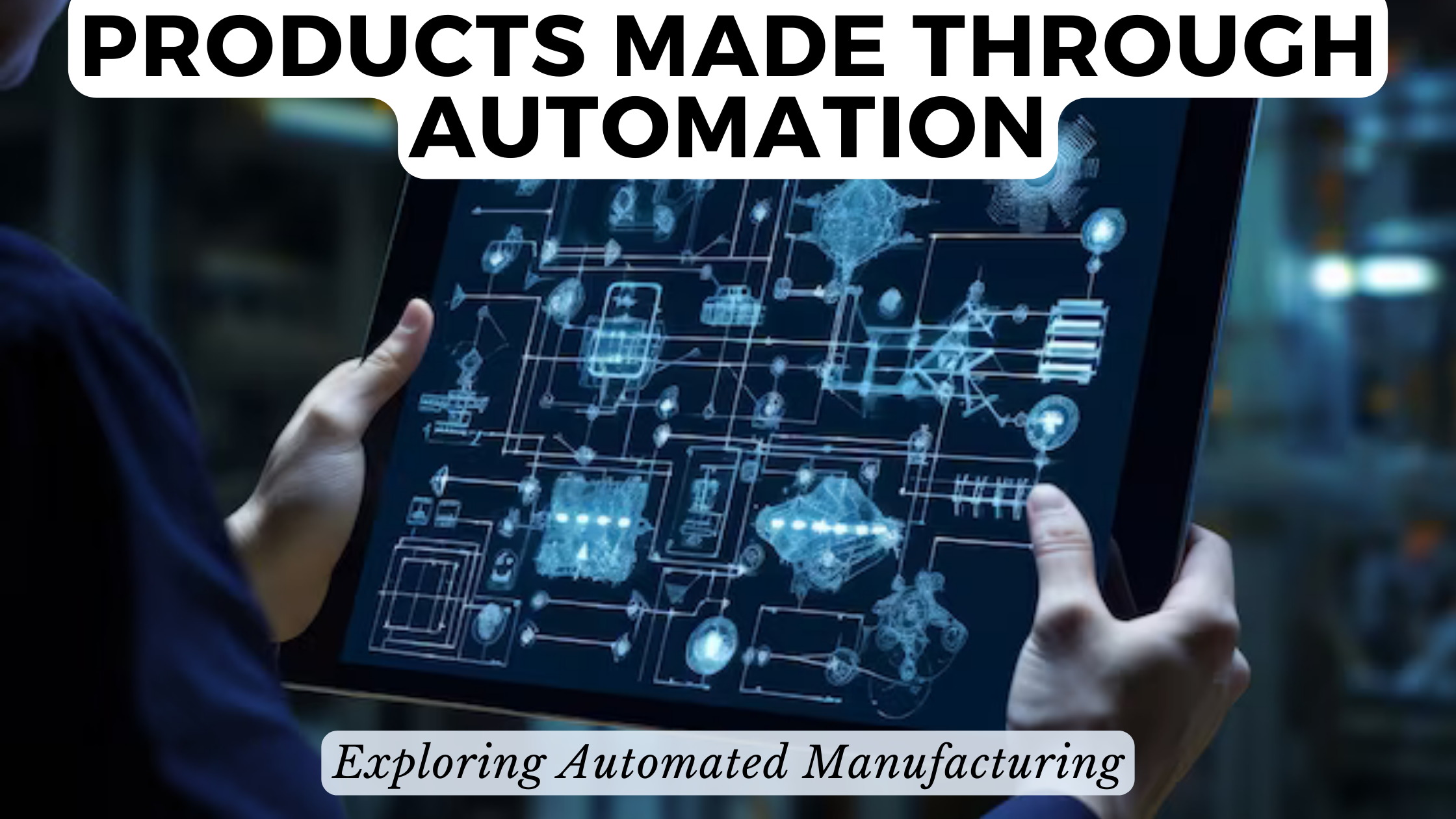Products Made Through Automation: Exploring Automated Manufacturing
-


Products Made Through Automation: Exploring Automated Manufacturing
Automation is transforming manufacturing, enabling faster, more flexible and cost-effective production. From raw materials to finished products, exploring automated processes provides insights into the factories of the future. This article will examine key automated technologies shaping modern manufacturing.
Automated Material Handling
Moving raw materials and work in progress smoothly through production is critical for efficiency. Automated solutions like AGVs from Fetch Robotics and conveyors from FlexLink optimize material flows:
- Automated guided vehicles (AGVs) – Driverless vehicles follow programmed routes for material delivery using sensors and navigation technology.
- Conveyor systems – Intelligent conveyor networks like FlexLink’s move materials between production stages and warehouses autonomously.
- Picking robots – Robots like RightHand Robotics’ can identify and grasp objects for warehouse picking and kitting tasks efficiently and precisely.
- ASRS systems – Automated storage and retrieval systems like Westfalia Technologies’ load, store, and retrieve inventory without human involvement.
By removing bottlenecks around physical material handling, automation enables faster production lead times. It also frees up workers from repetitive material transport tasks.
Automated Manufacturing Processes
Advanced capabilities are enabling automated production of components, sub-assemblies and finished products:
- CNC machines – Computer numerical control machines like Haas Automation’s leverage programming to perform complex fabrication operations like cutting, drilling and milling.
- 3D printing – Additive manufacturing systems like Formlabs’ add material layer-by-layer based on 3D design files without molds or tooling.
- Machine vision – Vision inspection systems like Cognex’ allow automated inspection, tracking and sorting of parts by detecting inconsistencies.
- Smart robotics – Collaborative robots like Universal Robots’ can be programmed to assemble products by mimicking human motions with precision.
By integrating these automated technologies, laborious manual processes can be eliminated for faster, higher-quality production.
Automated Quality Control
Automating quality checks improves consistency and reduces defects:
- Automated inspection – Vision systems like Omron’s instantly identify microscopic defects in products and raw materials that human eyes would miss.
- Big data analysis – Manufacturing analytics platforms like Seebo’s provide insights from production data to predict errors and equipment failures before they happen.
- Smart sensors – Smart sensor systems like Axzon’s perform continuous real-time monitoring on equipment for early fault detection.
- Automated testing – Products can be automatically tested against specifications to identify flaws without human oversight using solutions like Kryon’s.
- Machine learning – By analyzing past production data, machine learning software like Falkonry’s improves quality standards over time.
Automated quality processes amplify accuracy and reduce waste to optimize manufacturing.
The Benefits of Automated Manufacturing
Here are some of the key benefits driving adoption of smart automated technologies:
- Increased production speed and volume by removing bottlenecks
- Higher consistency and lower defect rates
- Ability to track and optimize processes through data insights
- Reduced operating costs by minimizing manual labor
- Flexibility to quickly adjust to changing customer demands
- Improved safety for workers by automating dangerous tasks
- Ability to scale and expand efficiently with less physical footprint
Manufacturers of all sizes stand to realize major gains in agility, efficiency and competitiveness from automated solutions.
As automation transforms factories, manufacturers must navigate a complex technology landscape. Subscribed.FYI provides an invaluable directory to compare manufacturing software solutions in one place.
With Subscribed.FYI, manufacturers can easily evaluate top technologies based on peer reviews, pricing, integrations and feature comparisons. This enables confident decision making when investing in automation to maximize ROI.
By centralizing information on hundreds of manufacturing tools, Subscribed.FYI empowers users to understand options, shortlist solutions aligned to their needs and implement the best software for optimization. Accelerating production and boosting quality through smart automation delivers a strong competitive advantage.
Relevant Manufacturing Automation Software
- Fetch Robotics – Autonomous Mobile Robots
- FlexLink – Automated Conveyor Systems
- RightHand Robotics – Robotic Piece Picking
- Westfalia Technologies – Automated Storage & Retrieval
- Haas Automation – CNC Machines
- Formlabs – 3D Printing & Additive Manufacturing
- Cognex – Machine Vision Systems
- Universal Robots – Collaborative Robots
- Omron – Automated Inspection Systems
- Seebo – Manufacturing Data Analytics
- Axzon – Smart Sensors & IIoT
- Kryon – Test Automation
- Falkonry – Manufacturing AI & Machine Learning








